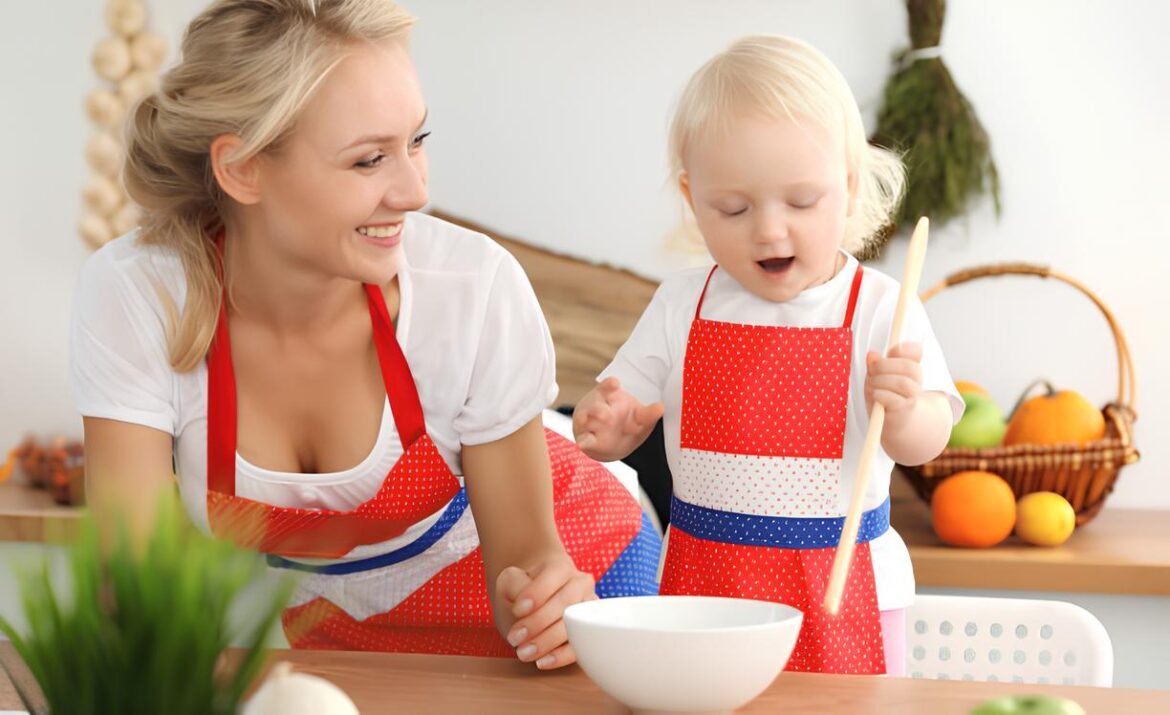There’s a special kind of magic that happens when toddlers toddle into the kitchen to lend a hand. It only takes a few moments of flour-smeared fingers spinning pizza dough or carefully pouring ingredients to realize that cooking together opens up a whole new world for both parent and child. But beyond the adorable mess lies a trove of surprising benefits that often go unnoticed.
Boosting Early Development Through Cooking
When toddlers help out in the kitchen, it’s more than just playtime — it’s an immersive, hands-on way to develop critical skills. The act of stirring, measuring, or sorting ingredients engages fine motor skills essential for tasks like writing later on.
Counting spoonfuls of flour or naming colorful vegetables teaches early math and vocabulary without feeling like a lesson. Science subtly sneaks in too as toddlers observe how cold butter melts or how dough rises with yeast.
The kitchen becomes a laboratory where curiosity blossoms, creating a foundation for lifelong learning. These sensory experiences—touching, smelling, tasting, and seeing—are crucial during toddler years, promoting brain growth and neural pathways.
Examples of Developmental Learning While Cooking
- Fine Motor Practice: Pouring, spreading, and mixing help refine hand-eye coordination.
- Language Skills: Naming ingredients or describing textures expands vocabulary.
- Cognitive Growth: Understanding sequences (“first we mix, then we bake”) introduces cause and effect.
- Social Skills: Taking turns and following instructions fosters cooperation and patience.
Building Confidence and Independence
Giving toddlers real roles in cooking sends a powerful message: you are capable, valued, and trusted. Completing small tasks, like placing toppings on pizza or washing veggies, boosts their self-esteem.
These early experiences of success empower toddlers to take on new challenges confidently in and outside the kitchen. They learn to focus, follow steps, and feel accomplishment, all vital building blocks for independence.
It’s a gentle yet effective way to nurture problem-solving skills and self-reliance—qualities that serve children their entire lives.
Let toddlers choose between two safe options—like red or green pepper slices—to encourage decision-making and ownership.
Encouraging Healthy Eating Habits Early On
Toddlers who help prepare food often become more excited about trying new dishes. The connection they build with ingredients, from touching to mixing, lessens the mystery around unfamiliar foods.
Exposing children to a variety of flavors and textures in a playful, pressure-free setting encourages openness rather than picky eating. They are more likely to enjoy what they’ve helped create, boosting their willingness to experiment at mealtimes.
This early engagement sets a strong foundation for developing balanced, adventurous palates and a positive relationship with food.
Ways to Make Healthy Cooking Fun and Inclusive
- Create Colorful Plates: Involve toddlers in assembling vibrant fruit or veggie snacks.
- Use Themed Cooking: Shape sandwiches or fruit salads around fun stories or characters.
- Grow Your Own Ingredients: Pair cooking with gardening to deepen interest in fresh produce.
Strengthening Family Bonds and Creating Memories
Cooking together forges meaningful connections between toddlers and caregivers. These moments are ripe for conversation, laughter, and teamwork—key ingredients for nurturing strong family ties.
Shared meals born from joint effort become more than just food; they transform into cherished rituals packed with memories.
Plus, involving toddlers in meal prep shows them how family roles work, and it can ease mealtime stress by turning the process into something joyful and collaborative.
Turn routine cooking into a special event by creating a simple “chef’s apron” for your toddler to wear—it adds to the fun and makes them feel official.
Keeping It Safe: Practical Tips for Cooking with Toddlers
While letting toddlers help in the kitchen is rewarding, safety remains paramount. Toddlers are naturally curious but unaware of potential dangers like hot surfaces, sharp utensils, or heavy equipment.
Establishing clear boundaries and setting up toddler-friendly cooking stations can minimize risks. Educate little helpers about what’s “okay” to touch and what requires adult supervision.
Simple tweaks transform your kitchen from a hazard zone into a safe playground of discovery.
Safety Strategies to Keep in Mind
- Designate a Safe Zone: Use a stable, low table where toddlers can comfortably reach ingredients without risky climbs.
- Use Child-Safe Tools: Choose plastic knives or peelers designed for young hands.
- Keep Hot Items Out of Reach: Pots, pans, and ovens should be off limits without adult help.
- Practice Handwashing: Make cleanliness part of the fun routine before touching food.
- Supervise Consistently: Never leave toddlers unattended near cooking appliances or food prep areas.
FAQ
At what age can toddlers start helping in the kitchen?
Most toddlers as young as 18 months can start with simple tasks like washing vegetables or stirring, always under supervision.
How do I keep cooking fun without feeling overwhelmed?
Keep activities age-appropriate and focus on process over perfection. Short sessions and lots of praise go a long way.
What are some simple recipes to start with toddlers?
Fruit salads, sandwiches, smoothies, and no-bake snacks are excellent for beginner chefs.
Embracing Kitchen Time with Toddlers: More Than Just Cooking
Letting toddlers become kitchen helpers is a doorway to growth, connection, and joy. From enhancing development to building confidence and nourishing healthy habits, the benefits ripple far beyond any recipe. With a little preparation and safety awareness, these shared culinary moments become treasured family traditions that every parent and child can savor.
As you welcome your toddler into the kitchen, remember that the goal isn’t just a finished dish, but the memories created along the way. For more inspiration on cultivating family bonds through everyday activities, check out ideas on how to create a family cookbook that captures your favorite memories. It’s an excellent next step to keep those culinary connections alive outside the kitchen.

